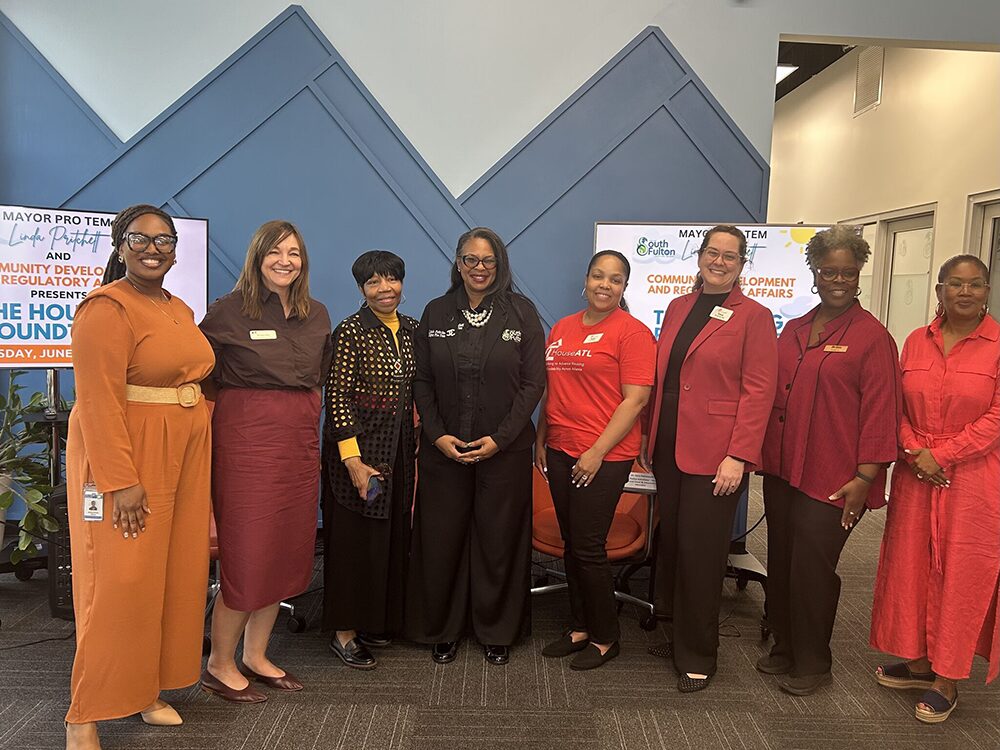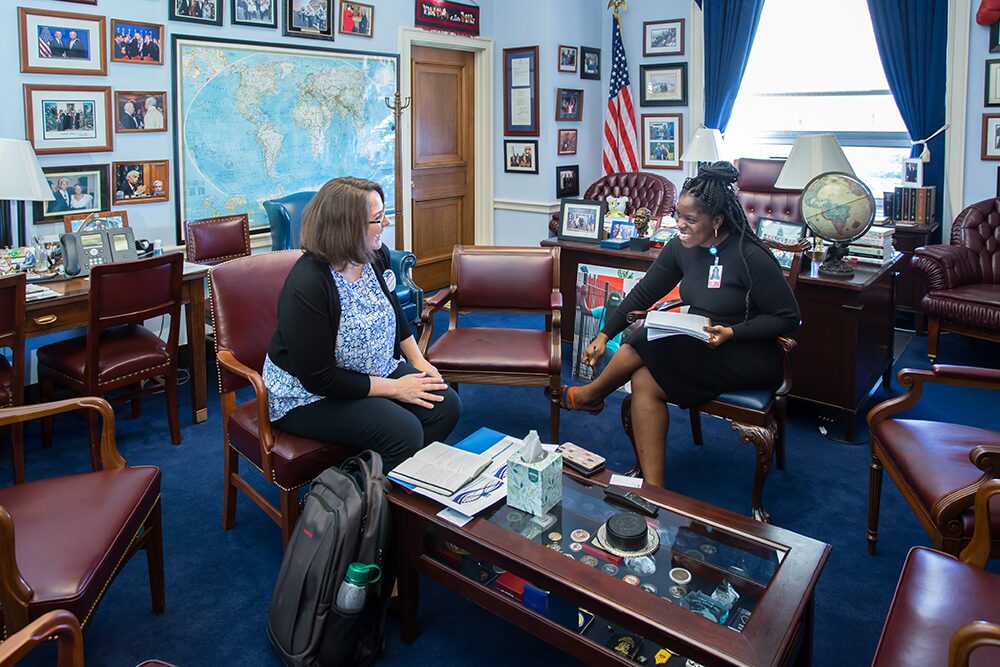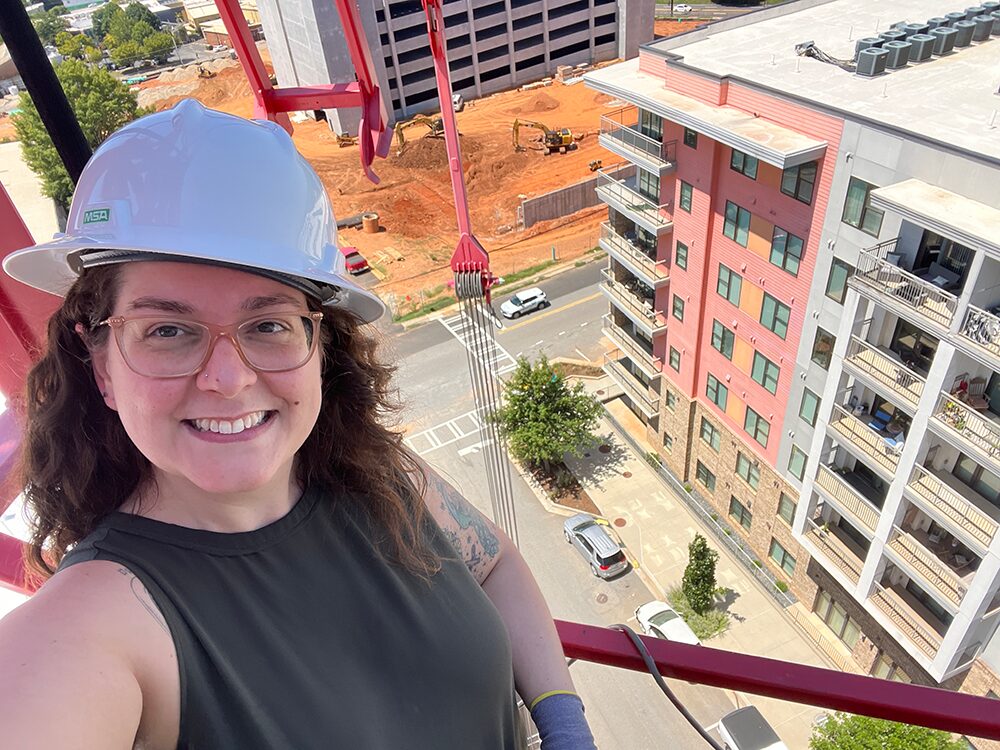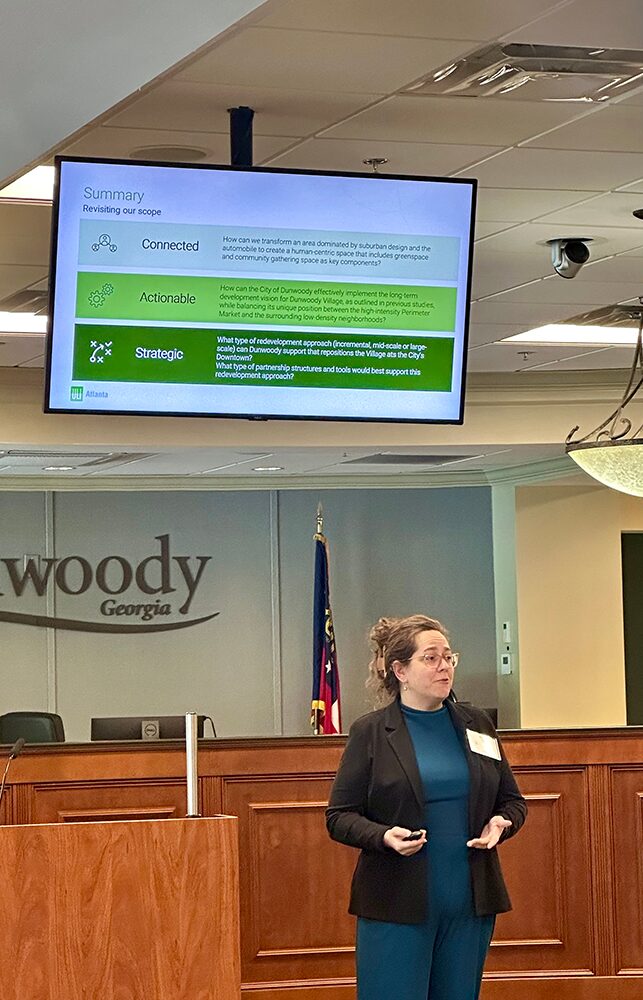From Vision to Impact: Dr. Sara Patenaude on Community, Policy, and Possibility
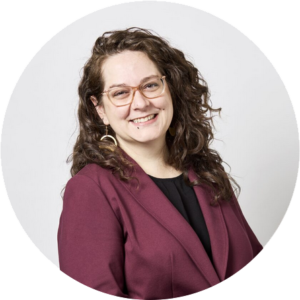 As Southeast Policy Director on Reinvestment Fund’s Policy Solutions team, Dr. Sara Patenaude brings more than analytical rigor to her work; she brings a deep belief in the transformative power of housing, community, and connection.
As Southeast Policy Director on Reinvestment Fund’s Policy Solutions team, Dr. Sara Patenaude brings more than analytical rigor to her work; she brings a deep belief in the transformative power of housing, community, and connection.
With a background in history and housing policy, Dr. Patenaude’s journey from academic researcher to practitioner and now trusted advisor is rooted in one central theme: people.
We sat down with Sara to talk about her passion for housing, how she integrates data with humanity, and what gives her hope for the future of community development.
Q: You started your academic career in history. How did that lead you to housing policy and your current work?
Sara: My doctorate is in history, and I focused on the history of housing policy and cities. I’ve always been fascinated by how public spaces shape communities and how communities, in turn, shape the spaces around them. That curiosity first led me to study the desegregation of public parks—and eventually to public housing in Baltimore.
What struck me most in that research was something unexpected: I discovered that people who once lived in now-demolished public housing projects still hold reunions for the communities they formed in those places. These were places that had been written off in the public imagination, often viewed through the lens of stigma or failure. But for the people who lived there, they were home—filled with memories, relationships, and pride. That sense of place and lasting community was incredibly powerful.
That realization reshaped how I think about housing. It’s not just buildings or policy—it’s the foundation that supports everything else in life. Where you live influences your job opportunities, your children’s schools, your transportation options, your health, your safety, your sense of belonging. It’s all connected. For me, housing has become the thread that ties everything together.
When people say, “That’s just the way things are,” I see an opportunity to ask, “But why?” and “What else is possible?” History helps us understand the structural roots of inequity. It also reminds us that transformation is possible—it’s happened before, and it can happen again.
Dr. Sara Patenaude, Southeast Policy Director, Policy Solutions
Q: How does your background in history shape your approach to data and policy work?
Sara: I think history gives us the lens to see that the systems and markets we live within weren’t set in stone—they were designed. They evolved through decisions, policies, and power structures over time. And if they were created, they can be reshaped. That insight fuels so much of my work today.
When people say, “That’s just the way things are,” I see an opportunity to ask, “But why?” and “What else is possible?” History helps us understand the structural roots of inequity. It also reminds us that transformation is possible—it’s happened before, and it can happen again.
That’s why I see history and public policy as deeply intertwined. History isn’t just about understanding the past—it’s a roadmap for designing a better future. It gives us context, clarity, and the courage to imagine something more equitable and more just.
Q: You work at the intersection of data, policy, and community. How do you balance quantitative analysis with lived experience?
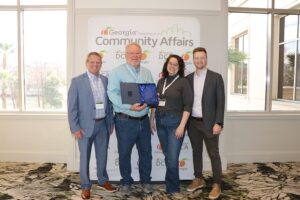 Before joining Reinvestment Fund, Dr. Patenaude led a team that team won the 2024 Statewide Award for Tenant Engagement Excellence from the Georgia Department of Community Affairs. |
Sara: We need both—the hard data and the human experience. Data provides clarity. It gives us the ability to identify trends, compare outcomes, and make more informed decisions. But data alone doesn’t tell the full story. Without community voice, you risk creating policy that’s detached from real life.
At Reinvestment Fund, we center lived experience because we believe the people closest to the challenges are also closest to the solutions. Community members are the true experts in what their neighborhoods need and what will work in their context. Our role is to partner with them—to bring tools, data, and technical support to help them achieve their vision, not to prescribe one of our own.
We approach every project as a collaboration. The most impactful solutions come from co-creating with stakeholders, not showing up with a playbook and expecting it to fit every place the same way. That’s not how real, lasting change happens.
Q: What makes Reinvestment Fund’s approach different?
Sara: It’s our ability to bridge insight and action. We don’t just produce data—we help communities use it to drive decisions, investments, and outcomes. Our tools, like Market Value Analysis (MVA), our Early Childhood Education (ECE) studies, and food access research, are all designed to be actionable. They’re not meant to sit on shelves—they’re meant to guide smart, equity-focused strategies.
What really sets Reinvestment Fund apart, though, is our long-term commitment. We’re not transactional. We build relationships. In many communities, we’ve been present for years—sometimes decades. That kind of trust means something. It means we’re not just outsiders with a spreadsheet; we’re partners in the work, invested in outcomes.
We’re also uniquely positioned because of our ability to integrate research, policy advising, and capital deployment. That’s incredibly powerful. We can help diagnose a challenge—and then bring tools to actually do something about it.
Q: What advice do you give policymakers or funders who want to use data responsibly?
Sara: Start with your priorities. Data is powerful, but it’s not a compass—it doesn’t tell you what to care about. You need clarity on your goals. Are you trying to stabilize neighborhoods? Prevent displacement? Invest in communities that have been historically underfunded? And who are you trying to serve—not just today, but five or ten years from now?
Once you define your priorities, data can help you identify where to act and what strategies are most likely to have an impact. But using data responsibly also takes humility. You have to be honest about what’s worked, what hasn’t, and be open to adjusting course when new insights emerge.
Another piece that’s critical: listen to community members. They bring knowledge and lived experience that no dataset can replicate. Data should support their vision—not override it. The best policy is built with, not for.
And don’t be afraid to think big. Some of the most meaningful changes happen when you pair solid data with bold imagination. Use data to ground your work in reality—but let your vision lead you toward what’s possible.
Q: You mentioned the “power of dreaming.” What does that mean in your work?
Sara: I’m someone who’s really good at working within constraints. Give me the funding limitations, zoning regulations, or political hurdles—I can find a path forward within that framework. That’s valuable. But I’ve also learned that transformative change often comes from outside the box—from the people who ask, “What if we did something totally different?”
To me, dreaming means giving ourselves permission to imagine a world that doesn’t yet exist. One that is more just, more inclusive, more vibrant. And then asking: what steps do we need to take to get there?
We’re at a moment in housing and community development where the future is wide open. It could go in many directions. So we have to be bold enough to dream up something better—and grounded enough to make it real.
Q: What’s a moment from your career that stayed with you?
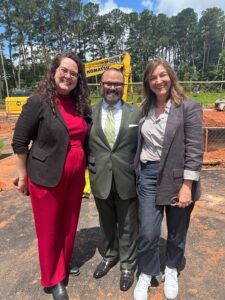 At the ribbon-cutting. |
Sara: The ribbon-cutting for the Village at Legacy Park in Decatur, Georgia is one I’ll never forget. Years ago, I was just a grad student and a single mom attending community meetings, advocating for affordable housing on this former foster home site. I had no idea then that I would eventually be the developer responsible for making it happen.
To go from being a voice in the room during the visioning process to standing at the ribbon-cutting as the project came to life—it was full-circle. I got to see what it means to carry an idea all the way through: from a “wouldn’t it be great if…” to real homes and real families.
That experience reminds me every day that change is possible, and that the people who show up and speak up—no matter where they are in their journey—can be the ones who help make it happen.
Q: What advice would you give to women entering this field?
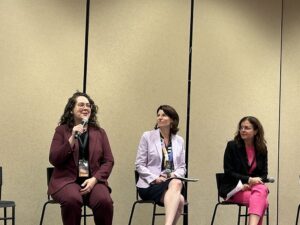 Dr. Patenaude at the 2024 Women’s Affordable Housing Network. |
Sara: Don’t feel like you have to solve everything. Focus on your piece of the puzzle and give it your full heart. This work is complex and multi-layered, and no one can do it alone. Surround yourself with others—especially other women—who will support you, challenge you, and walk beside you.
Also, make space for dreaming. Even if you’re the practical one in the room, keep yourself open to those bold ideas. We need more voices at the table who believe in the possibility of a better future and are willing to do the work to get us there.
And finally, remember that your perspective matters. There’s no one way to lead in this field. Bring your whole self to the work—your experiences, your empathy, your resilience. That’s how we create lasting impact.
